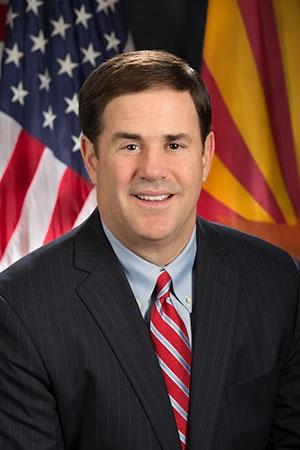Governor Ducey and Arizona Republicans Lead the Way on Occupational Licensing

On April 10, 2019, Governor Doug Ducey (R) signed HB 2569 into law, allowing universal recognition of occupational licenses in Arizona. Arizona is the first state to recognize out-of-state licenses.
Representative Warren Petersen (R) introduced the legislation in the House on February 4, 2019. The bill passed the House by a 36 to 24 vote on February 25th, and it passed the Senate on April 4th by 18 to 11 with one Senator not voting.
This new law will allow workers who have been licensed in other states for at least a year to apply for an Arizona license in their field without completing the training requirements. The workers must, however, be in good standing in the state where they are licensed, pay the Arizona fees and meet all residency, testing and background check requirements.
Governor Ducey explained his support of the bill in a press release:
“With this bill, Arizona’s sending a clear message to people across the country: if you’re moving to Arizona, there's opportunity waiting for you here. There’s dignity in all work. And we know that whether you make your living as a plumber, a barber, a nurse or anything else, you don’t lose your skills simply because you moved here. The bill we signed today protects public health and safety while eliminating unnecessary and costly red tape. It’s an Arizona original and should be a model for other states for how to work together and do the things that matter. My thanks to Representative Petersen for sponsoring this important legislation and to the many people who helped make this first-in-the-nation reform possible.”
Arizona is the fourth largest growing state. With this new law, Arizona will attract even more people from other states and grow its economy. This new law could also encourage other states to make much-needed reforms to their occupational licensing.
The number of occupational licenses has unfortunately increased tremendously in the last few years to the detriment of American workers and the economy. In 1970, for example, only about 1 in 10 workers needed a license. That number is now 1 in 3 with 1,100 occupations licensed in 2003, according to the Council of State Governments.
This increase in licenses has led to workers losing between $178 million and $711 million because they can’t move to another state easily and take a higher paying job. In fact, licensing regulations can reduce job growth by 20%. The costs associated with licensing are likely between $34.8 billion and $41.7 billion.
In addition, licensing, in particular, hurts lower income households. For example, licensing only increases wages for the lowest-earning 30% of workers by 3.6% to 5.1%, while it increases the wages of the top 30% by 10% to 24%.
Further, consumers are hurt by the increase in prices. Some licensing inflates wages by as much as 15%. The total economic cost of licensure is estimated at $203 billion with a loss of 2.85 million jobs.
Given the great cost of occupational licensing to workers and the economy, Americans for Tax Reform and the Center for Worker Freedom strongly support this new law and urge other states to consider passing similar laws.





